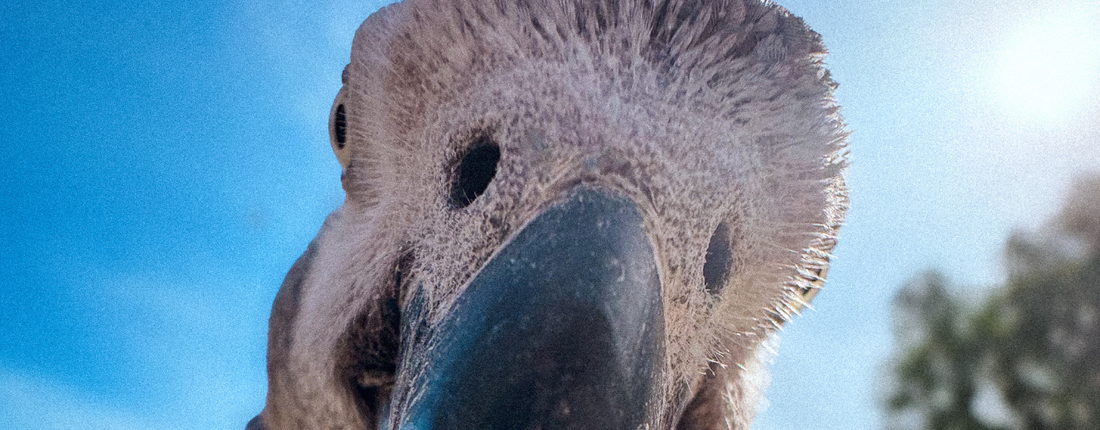
How to Tell if My African Grey Parrot is Hormonal
African Grey parrots are famously intelligent, sensitive, and deeply bonded companions. But with that sensitivity comes a side of parrot ownership many people aren’t prepared for: hormones. Like all parrots, African Greys go through hormonal seasons, and when they do, their behaviour can change dramatically, leaving owners confused and worried.
If you’ve noticed strange noises, clingy behaviour, or sudden aggression, you might be asking yourself, “Is my African Grey hormonal?” Here’s how to recognise the signs, what triggers them, and how to help your Grey through it.

Common Signs of Hormonal Behaviour in African Grey Parrots
Hormones can show up in a variety of ways, and not every bird will display every behaviour. Some of the most common include:
- Unusual vocalisations – Many Greys make a distinct grunting or chirping sound when hormonal. It’s not their usual call or chatter, but a repetitive, odd-sounding squeaky noise that often accompanies posturing.
- Wing and body postures – Shaking, holding the wings out slightly from the body, or dropping them low are classic hormonal signs. A hormonal Grey may crouch down on your hand and grip tightly, refusing to let go.
- Regurgitation and beak rubbing – A hormonal Grey may regurgitate food for their favourite person or even wipe their beak over your skin, hair, or clothes. It’s a misguided way of showing “affection.”
- Nesting behaviour – Digging and scratching in corners, burrowing under cushions, or becoming obsessed with dark spaces like behind the sofa, under furniture, or in wardrobe corners are common.
- Destructive behaviour – Shredding paper, wood, fabric, or anything they can get their beak on may increase during this time.
- Increased noise – Hormonal Greys can become louder, more persistent, and harder to calm down, sometimes paired with anxious pacing or restless behaviour.
- Reduced appetite – Some birds eat less when hormones are in full swing, focusing their energy on “mating” behaviours instead of food.
- Feather plucking – In some cases, hormonal stress can trigger plucking. Always consult an avian vet if this happens, as plucking may also signal illness, pain, or environmental stress.
- Aggression and possessiveness – African Greys are particularly prone to bonding intensely with one caregiver. During hormonal seasons, this can result in aggression towards others in the home, sometimes escalating to dive-bombing, biting, or lunging.
When Does Hormonal Behaviour Happen?
In the wild, breeding behaviour is linked to seasonal changes and the availability of food. Longer daylight hours, warmer temperatures, and abundant food sources all trigger hormones. In captivity, parrots may show hormonal behaviour in spring and autumn, but environmental factors at home can also set them off, such as over feeding and too much free access to food, warm sloppy foods (like porridge or eggs), nest boxes or hammocks in the cage and even mirrors.

Environmental Triggers for Hormonal Behaviour
Hormones don’t just appear out of nowhere. Common triggers include:
- Abundant, high-calorie food – In the wild, plentiful food signals the right time to breed. In captivity, feeding too many calorie-dense foods like nuts, sunflower seeds, or sugary fruits can trick your Grey’s body into “breeding mode.”
- Dark, enclosed spaces – Allowing your Grey to hang out in cupboards, under blankets, or in sofa corners mimics nesting environments and can increase hormonal behaviour. This even includes within the cage, so avoid hammocks, nesting boxes etc
- Excessive petting – Stroking your bird’s back, under wings, or tail can be misinterpreted as mating stimulation. Stick to head scratches only, although even this can be a trigger. Monitor what turns your bird on and avoid that!
- Daylight hours – Too much light, or inconsistent light cycles, can disrupt natural rhythms and encourage hormones.
How to Manage Hormonal Behaviour in African Greys
Hormones can’t be stopped completely, they’re a natural part of life, but you can manage them:
Adjust the diet – Switch to a balanced, varied diet with plenty of vegetables, sprouted seeds, herbs, and dry food. Keep high-fat foods like nuts for training or enrichment only, do not leave a big bowl out all day and night, it just isn't necessary at any time. This reduces the “abundant food” signal that triggers hormones.
Limit nesting opportunities – Block access to dark corners and don’t encourage digging or burrowing. Offer foraging toys instead to redirect the behaviour.
Respect boundaries – Avoid handling that mimics mating. Stick to head scratches and keep interactions light and positive. Observe what triggers your bird and avoid that. You may even have to avoid letting your bird interact with certain people.
Regulate light – Try to mimic natural daylight cycles. Ensure your bird gets 10–12 hours of dark, quiet sleep each night.
Provide enrichment – Keep their mind and body busy with foraging toys, training, and flight time. A mentally engaged Grey is less likely to obsess over hormonal triggers.
African Grey parrots are famously sensitive, and hormones can turn them into a different bird for a while. From strange noises to aggression and nest-digging, these behaviours are normal, but they can be challenging, this is the time when most parrots are rehomed! With careful management of diet, environment, and interaction, and with some knowledge about why this is happening, you can help your Grey move through hormonal seasons more comfortably.
If your bird suddenly develops extreme behaviours or begins feather plucking, always consult an avian vet to rule out medical causes. Hormones may be natural, but your Grey’s wellbeing always comes first.

FAQ: African Grey Parrots and Hormonal Behaviour
Why is my African Grey making a weird grunting or chirping noise?
That unusual noise is often a sign of hormonal behaviour. Many Greys make repetitive grunting, chirping, or squeaking sounds when hormones are active, usually combined with posturing or wing shaking.
When do African Grey parrots become hormonal?
Hormonal behaviour often appears in spring and autumn, when changes in daylight and food availability would trigger breeding in the wild. In captivity, long days, high-calorie diets, or nesting spots can bring it on at any time of year.
What are the signs of hormonal behaviour in African Greys?
Common signs include wing shaking and drooping, crouching and gripping onto hands, regurgitation, beak rubbing, digging in corners, shredding, seeking out dark spaces, excessive noise, reduced appetite, and sudden aggression towards family members.
How can I calm a hormonal African Grey parrot?
You can help by reducing high-fat foods, increasing food variety to engage the brain and keep them busy, removing access to dark corners, limiting petting to the head only, ensuring 10–12 hours of dark quiet sleep, and keeping them busy with foraging toys, training, and exercise.
Can hormones cause feather plucking in African Greys?
Yes, hormonal stress can sometimes trigger plucking, but it may also signal illness or pain. Always consult an avian vet if your Grey begins plucking feathers suddenly.
Are African Greys more hormonal than other parrots?
African Greys are particularly sensitive and prone to strong hormonal behaviour. They often bond intensely with one person, which can lead to aggression towards others during hormonal seasons.
